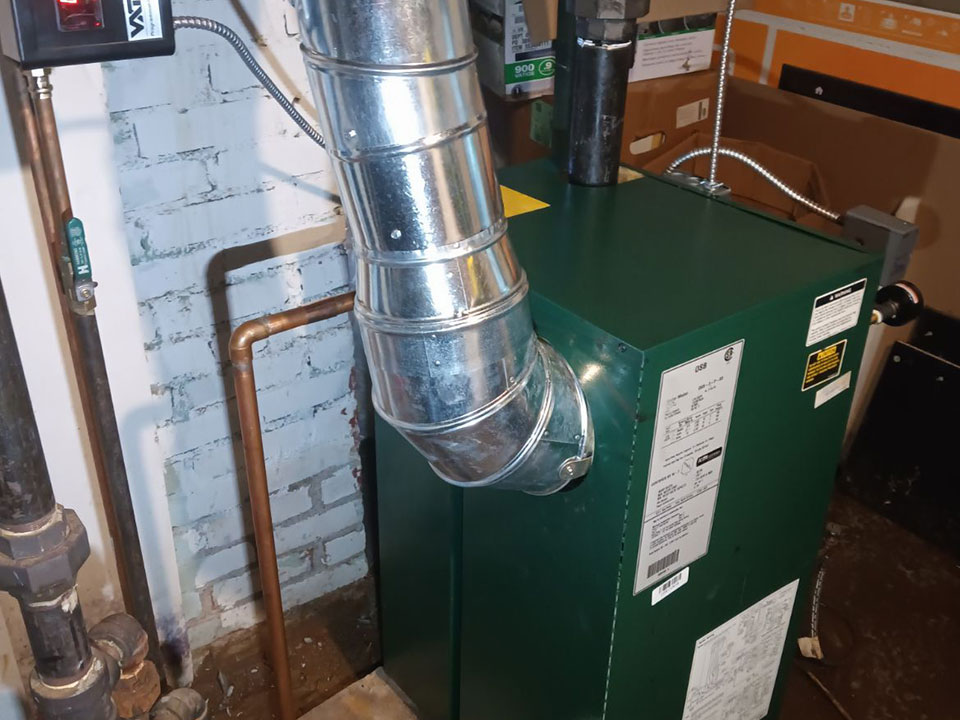
12 Nov Winter Tips for Maintaining Your Home Heating Oil System in Connecticut
Posted at 20:07h in Uncategorized
Winter Tips for Maintaining Your Home Heating Oil System in CT
Here are some tips for maintaining your home heating oil system during Connecticut’s cold winters to ensure it runs smoothly, efficiently, and safely:
1. Regular System Inspections
- Schedule a professional inspection and tune-up before winter. A technician can check for wear and tear, clean components, replace filters, and ensure everything is in working order.
- Look for leaks, soot buildup, and other signs of damage or inefficiency.
2. Check and Replace the Filter
- The oil filter traps contaminants and prevents them from clogging the system. Replacing it at the start of winter ensures that the system runs more efficiently.
- During winter, periodically inspect the filter and replace it if it appears dirty, as a clogged filter will reduce system efficiency.
3. Keep the Oil Tank Full
- Avoid letting your tank drop below a quarter full to prevent sludge at the bottom from clogging the fuel line.
- Keeping it full also reduces condensation buildup inside the tank, which can lead to rust or bacterial growth over time.
4. Insulate Exposed Pipes
- Wrap exposed fuel lines and pipes with pipe insulation to prevent freezing, which can cause blockages and costly repairs.
- Insulated pipes also maintain efficiency, allowing oil to flow smoothly through the system even during frigid temperatures.
5. Clear Vents and Chimneys
- Check that exhaust vents and chimneys are free of blockages, like leaves or snow buildup, to prevent carbon monoxide from backing up into your home.
- Clear any debris regularly to keep exhaust vents and chimneys functioning properly.
6. Monitor the System for Odd Sounds or Smells
- Unusual noises, smells, or sudden increases in heating costs can be early signs of an issue with your heating oil system.
- If you notice anything unusual, contact a technician right away before a minor problem becomes a costly repair.
7. Maintain a Clean Burner
- The burner ignites the oil to produce heat, and soot or dirt buildup can interfere with this process.
- Regularly check the burner area and have it cleaned to keep it operating efficiently and safely.
8. Test Your Carbon Monoxide Detectors
- Ensure your home has working carbon monoxide detectors, especially near the heating system, as oil systems can produce carbon monoxide if they malfunction.
- Test detectors monthly and replace the batteries regularly for safety.
9. Consider Adding Heating Oil Additives
- Additives can prevent sludge and debris buildup, help reduce gelling in extremely cold temperatures, and increase the efficiency of your heating system.
- Choose an additive that is compatible with your system and follow the manufacturer’s recommendations.
10. Keep the Area Around the Tank Clear
- Keep the area around the oil tank clean and free from clutter to allow airflow and prevent accidental damage.
- This also makes it easier to spot leaks, condensation, or other issues with the tank.
Following these steps will help you keep your home warm and comfortable throughout the winter while maximizing the lifespan and efficiency of your heating oil system.




